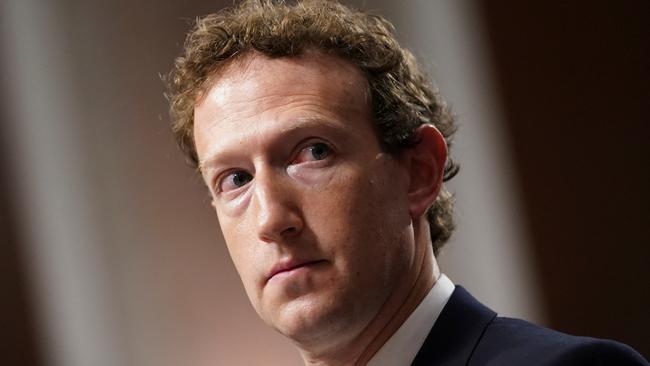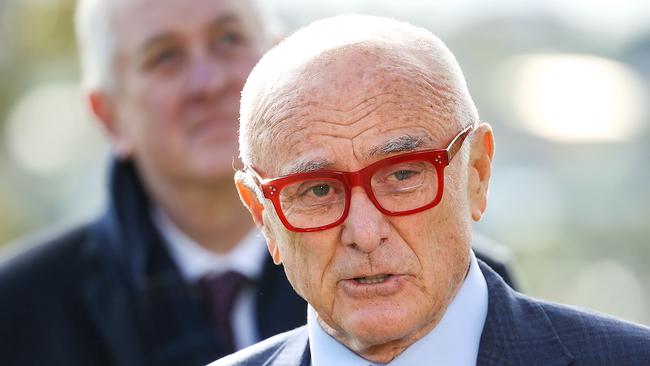
It, of course, brings with it many benefits, such as accessibility to human connection which wouldn’t otherwise be possible, and to support groups and fundraising activities, for instance. But, social media also brings with it at least as many challenges, some would even argue more.
A social licence to operate is not a new concept. This fuelled the birth and growth of the corporate social responsibility movement and related environmental, social, and governance initiatives — now seemingly buzzwords in every boardroom.
The social media platforms have investors they need to keep happy, but they also have a society trying to navigate many of the ills they have brought, along with their many benefits.
There is no major digital platform not making a decidedly large profit; Google owner Alphabet’s 2023 net profit rose 20 per cent to $US74bn ($113bn), while Facebook’s net profit increased 69 per cent to almost $US40bn.
It is for this reason I believe Australia should introduce a digital platforms levy, essentially as a social licence to operate.
I have been chair of the Public Interest Journalism Initiative since November 2019. At the beginning of my tenure, I was deeply concerned by the shocks being felt across the news sector as the financial model of this public good continued to be eroded by the shift of advertising dollars from news producers to online.

This concern has grown over the course of the past five years, and indeed sharply during Covid, when this pattern accelerated rapidly. Since PIJI started collecting data on news production across Australia in 2019, we have logged 340 contractions (adverse events like closures, staff cuts, masthead mergers and so on) across the country, with weighting towards rural and regional areas.
Government has not been unaware of this and has acted to alleviate some of the pressure on public interest news producers, with the News Media Bargaining Code the first major legislative attempt to revive the fortunes of news media outlets in Australia.
But, the code’s shortcomings were laid bare when Meta announced in March it would not renew the negotiated commercial deals.
There is now speculation Meta will move to remove news links on its services, as it has done in similar circumstances in Canada.
A number of EU countries and US state legislatures now have some form of a digital advertising levy on the books. Just weeks ago, the State Senate of California, the home of most of the major US tech platforms, passed SB 1327, a bill which imposes a 7.25 per cent “data extraction” levy on big tech platforms, and proposes to direct the revenue to newsrooms and schools.
A standard, percentage-based digital levy in Australia would also create financial and operational certainty for digital platforms (and their shareholders) who pay it, rather than the uncertainty case-by-case negotiations with news producers has the potential to create.
A digital levy could assist in financial support for public interest news production in this country, meaning content which records, reports or investigates issues of public significance for Australians — issues relevant to engaging Australians in public debate and informing democratic decision-making, and content which relates to community and local events.
Public interest journalism is integral to any functioning democracy, enabling the voting public to make informed decisions.
However, it is also crucial to social cohesion and transparency, which while important everywhere is ironically deeply important in rural and regional areas.
It also acts as a counterbalance to the misinformation and disinformation social media has introduced and (we might gracefully suggest inadvertently) encouraged.
But, the benefits of a digital platform levy could also be used across several other areas of social challenge, including the mental health and welfare of children, addressing privacy concerns and media (traditional and social media-forward) literacy education, of course for children, but for adults too.
None of these “big” societal issues can be fixed with a magical silver bullet. In the case of public interest news production, we need to pull multiple levers in order to cement its future.
A carefully crafted digital platforms levy could make a real difference as one of those levers, potentially putting government and digital platforms back on the same page.
Allan Fels is chair of the Public Interest Journalism Initiative, a professor of law and of economics at the universities of Melbourne and Monash and a former chair of the Australian Competition & Consumer Commission.






Every leap in technology throughout the ages has brought with it positive and negative influences on society, from the industrial revolution to television, and social media is no exception.